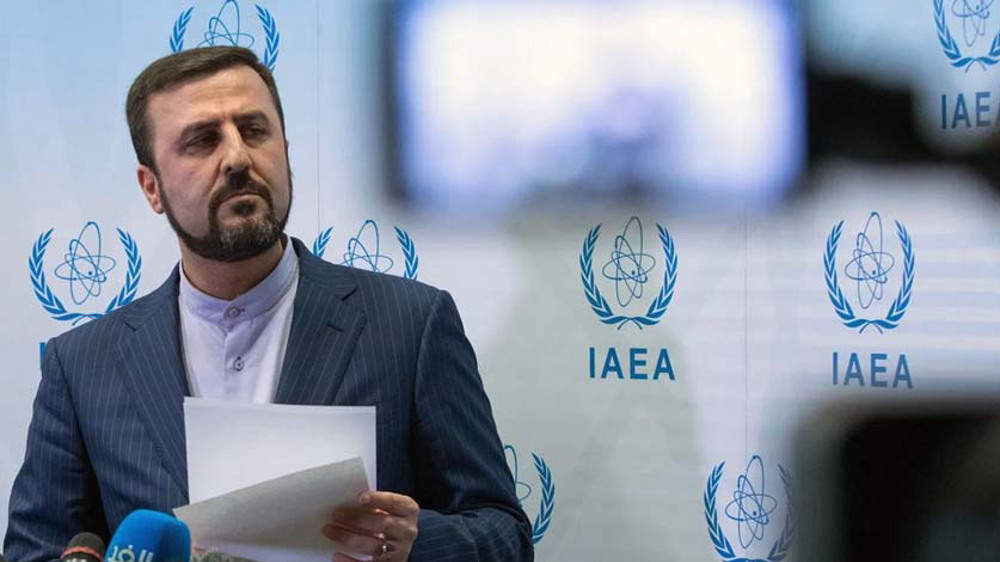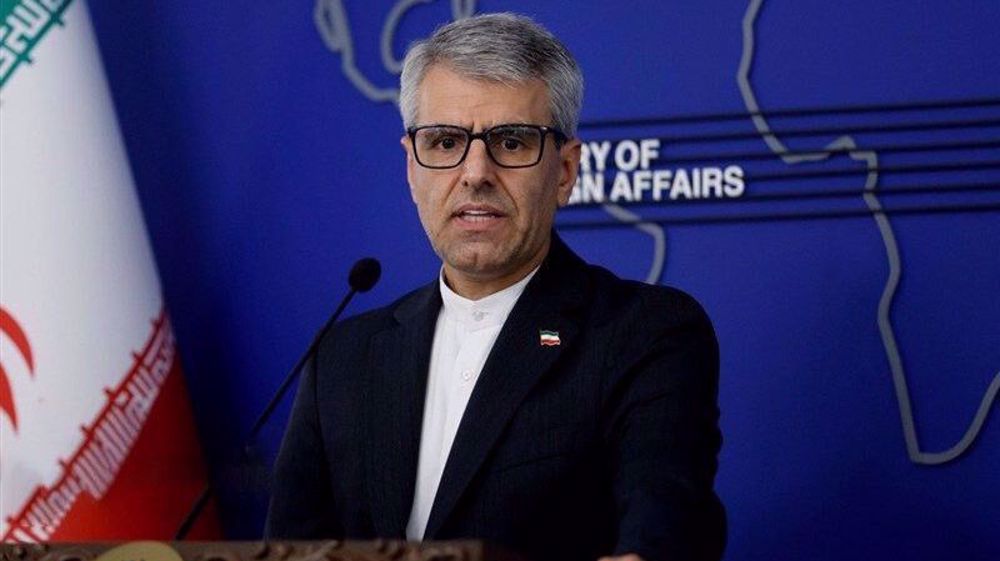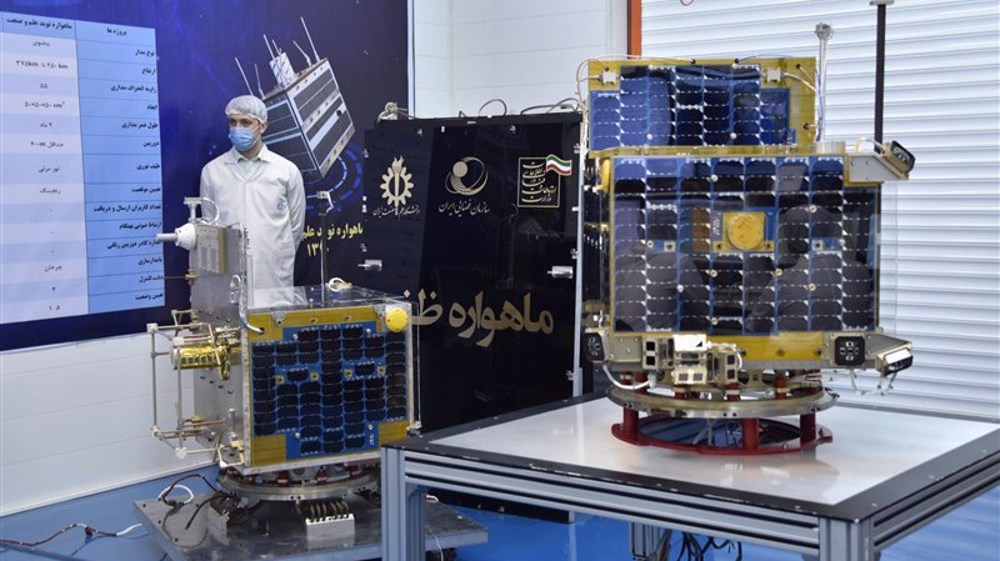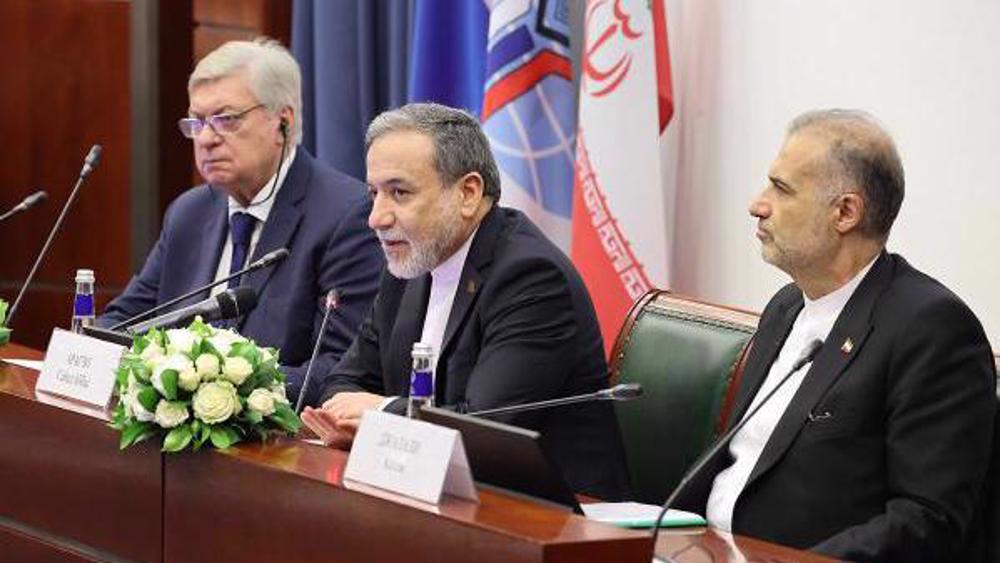Iran says Israel’s development of clandestine nuclear weapons facility serious threat to security, stability
Iran’s ambassador to international organizations in Vienna has criticized a “preferential treatment” given to the Israeli regime that allows it to press ahead with advancing its nuclear weapons program in defiance of international calls, saying Tel Aviv’s activities at a highly-secretive nuclear facility pose a serious threat to regional and international security and stability.
In a statement addressed to the International Atomic Energy Agency’s (IAEA) Board of Governors on Thursday, Kazem Gharibabadi said that all in the Middle East region, except the Israeli regime, are parties to the nuclear Non-Proliferation Treaty (NPT) and have undertaken to accept the Agency's comprehensive Safeguards.
Therefore, he added, the “development of a clandestine nuclear weapon program by this regime (Israel) poses a continuing serious threat not only to the security and stability of the region and the world, but also to the effectiveness and efficiency of the NPT and the Agency's safeguards regime.”
He emphasized that Israel is also not a party to any other major treaties governing weapons of mass destruction (WMD).
Citing commercial satellite imagery of the facility, the International Panel on Fissile Material (IPFM), a group of independent nuclear experts from 17 countries, reported last month that “significant new construction” had been underway at the Dimona complex.
The construction site sits “in the immediate vicinity of the buildings that house the nuclear reactor and the reprocessing plant,” the report said.
The Iranian envoy further said despite many resolutions adopted by the United Nations General Assembly and the IAEA over decades about Israel’s nuclear capabilities and the associated threats, the regime regrettably continues to ignore the international community by downplaying the significance of the NPT and refusing to place all its nuclear facilities and activities under the IAEA’s comprehensive safeguards regime.
“Ironically, Israel is now even enjoying a more preferential treatment as compared with that of the nuclear weapon states, since they are members to the NPT and have several obligations specifically under Articles I and VI of the Treaty,” Gharibabadi added.
He also criticized as a “clear contradiction” the fact that Israel, a non-member to the NPT, enjoys the full rights and privileges of the IAEA due to its membership while at the same time, it considers itself free from any responsibility and participates in all deliberations of the agency related to the NPT members.
“Such a situation has given this regime the audacity to ridicule the authority and mandate of the Agency in preventing the diversion of its nuclear materials and activities,” he added,
“Most importantly, this regime has become so cynically bold as to manipulate the realities and criticize other members of the NPT on the account that they have obligations due to their membership in the Treaty, but Israel has not. This is a very serious shortcoming and failure in the work of the Agency, which should be addressed properly.”
Gharibabadi warned that overlooking such an important issue directly affects regional and international peace and stability, challenges the established global disarmament and arms control norms, and damages the credibility and viability of the current disarmament and arms control architecture, including the IAEA and its safeguards regime.
He urged the IAEA to take a clear stand on unacceptability of the Israeli regime’s remaining outside the NPT framework and its continuing defiance to placing all its nuclear activities and facilities under the UN nuclear agency’s comprehensive safeguards system.
“The Agency has no choice but to take appropriate measures to ensure that Israel places all its nuclear installations under the Agency’s safeguards and accedes to the Non-Proliferation Treaty as a non-nuclear weapon party,” the Iranian diplomat pointed out.
He said it is an irony that the IAEA, its Secretariat, the Board of Governors and the General Conference are all concentrating on the NPT members “while the chronic strategic mistake is to overlook Israel’s nuclear materials and activities in the volatile region of the Middle East.”
“Doesn’t the policy of silence and negligence about Israel’s nuclear program and the inaction policy in this regard send a negative message to the members of the NPT, meaning that being a member of the Treaty equals accepting the most robust monitoring and verifications, while being outside the Treaty means to be free from any obligation and criticism, and even be rewarded”?!” Gharibabadi ironically asked.
Under its policy of nuclear ambiguity, the Israeli regime neither confirms nor denies having nuclear weapons. However, the regime is widely believed to be one of only nine nuclear-armed countries in the world.
At the same time, Tel Aviv has repeatedly called for international action against Iran’s nuclear program, which has been consistently verified by the IAEA to be of peaceful nature, unlike that of Israel which is not under the IAEA’s inspection.
Iranian Foreign Minister Mohammad Javad Zarif on February 20 lashed out at European leaders and the UN nuclear agency for turning a blind eye to the Israel regime’s quiet expansion of the highly-secretive Dimona nuclear facility in the Negev Desert while targeting Tehran’s nuclear program.
Read more:
Hezbollah condemns deadly terror attack on worshippers in Syria’s Homs
Iran parliament probes missing $6.7bn in oil export revenues: MP
Saudi-backed coalition vows to counter UAE allies in Yemen
VIDEO | Heavy rains, flash floods leave Southern California homes caked in mud
‘He chose to save lives’: Netizens rally for Gaza doctor’s release after a year in Israeli jail
US uses Iraqi airspace to spy on Iran, says Iranian ambassador to Baghdad
Iran facing ‘all-out war’, stronger than before June war: President
Iran’s headline inflation up 1.8% to 42.2% in December: SCI













 This makes it easy to access the Press TV website
This makes it easy to access the Press TV website